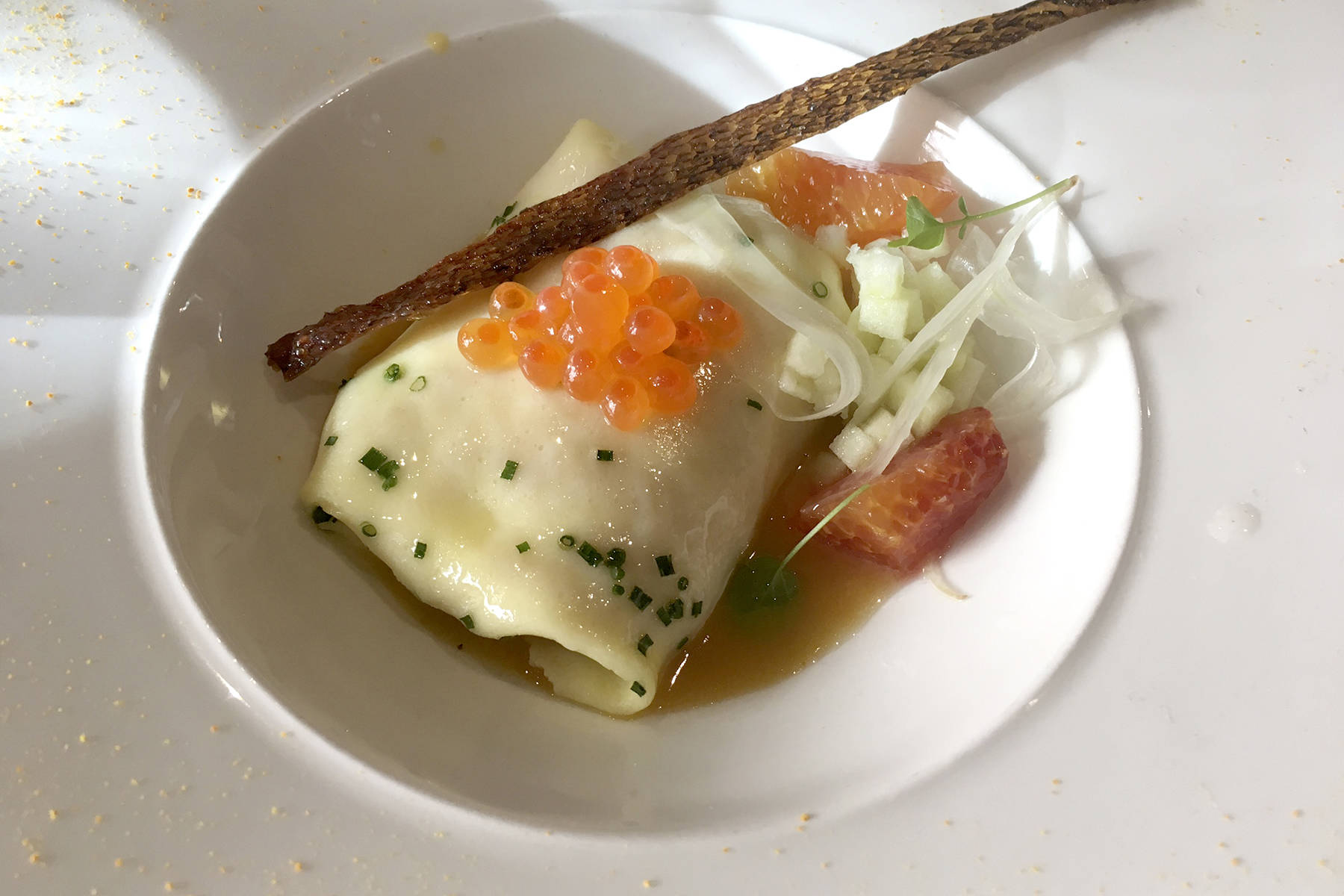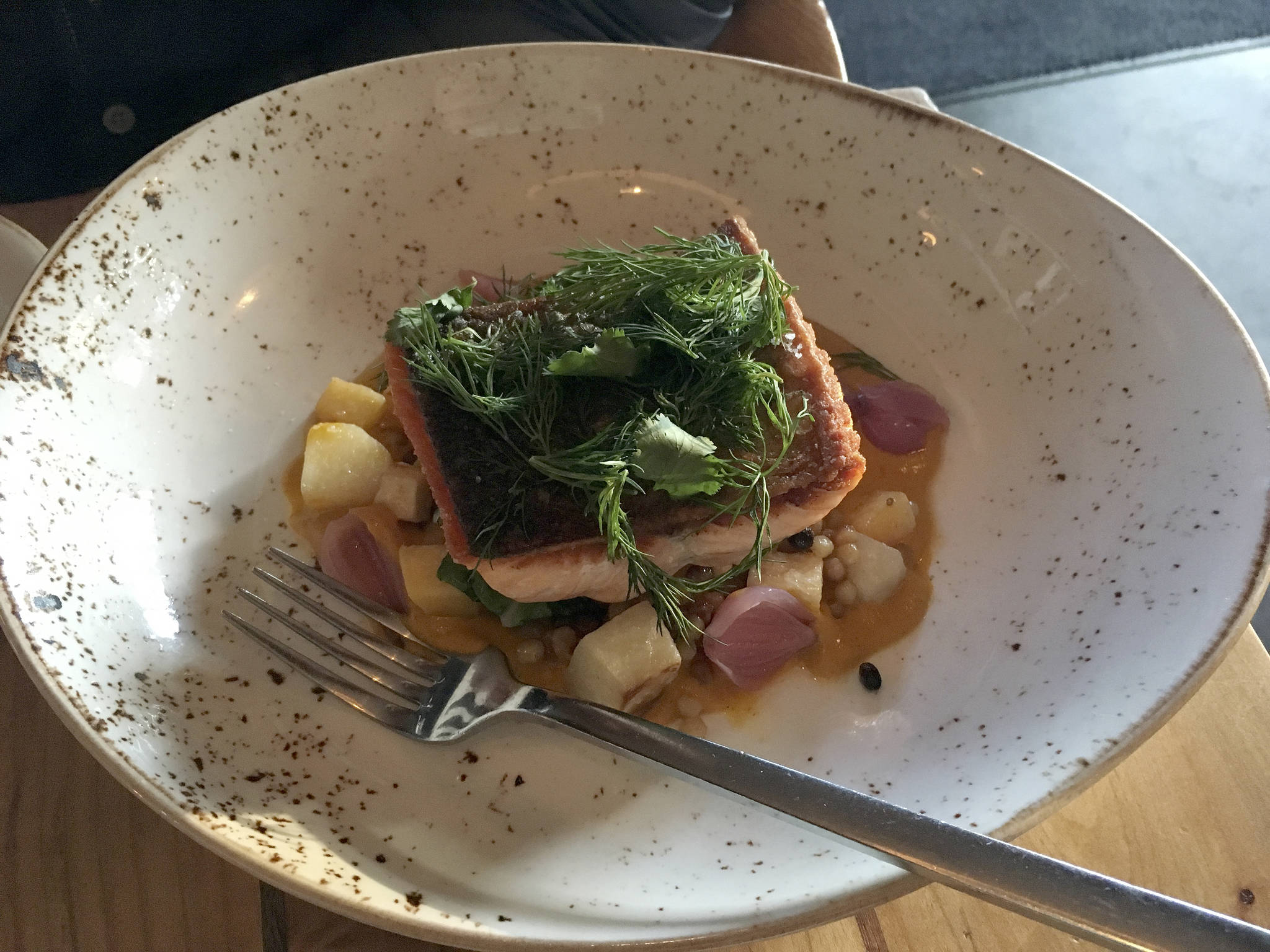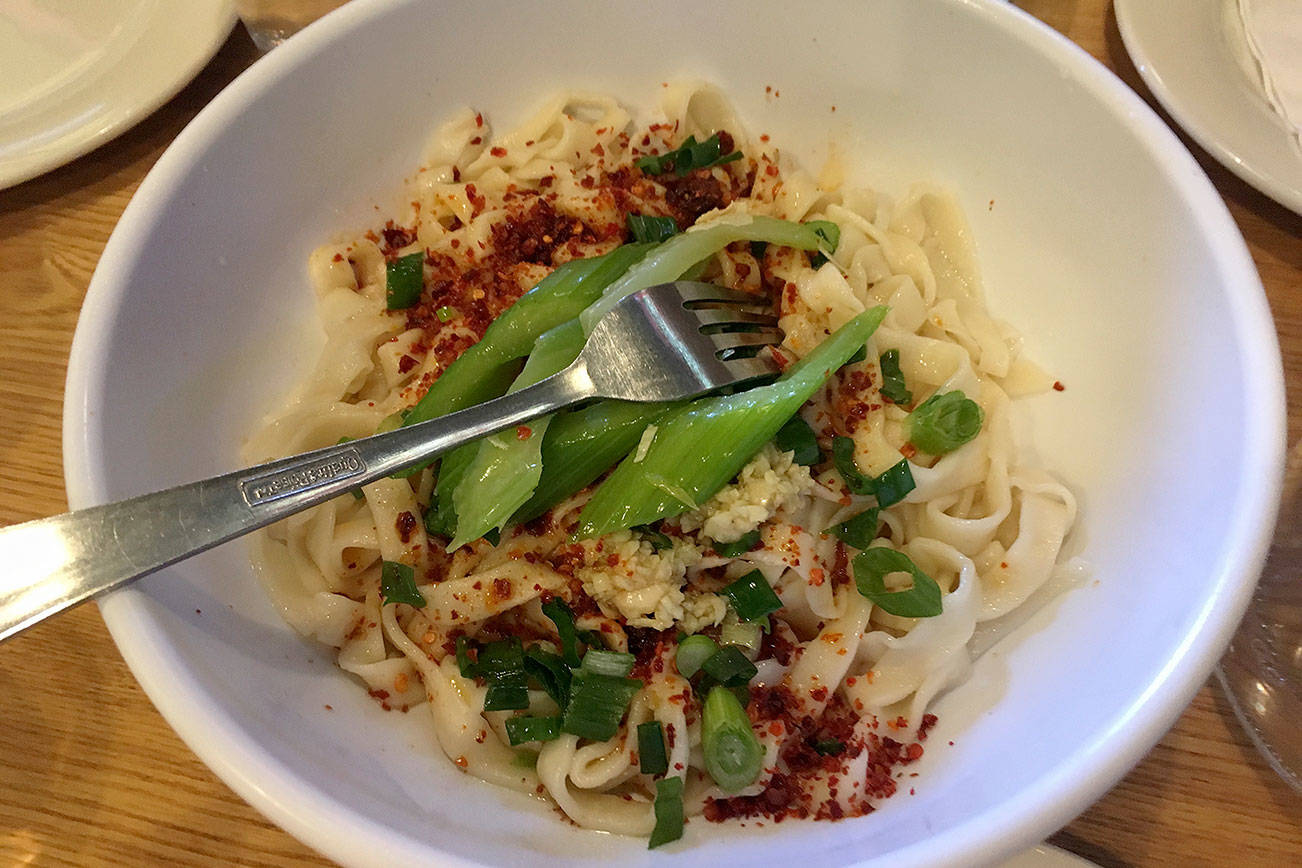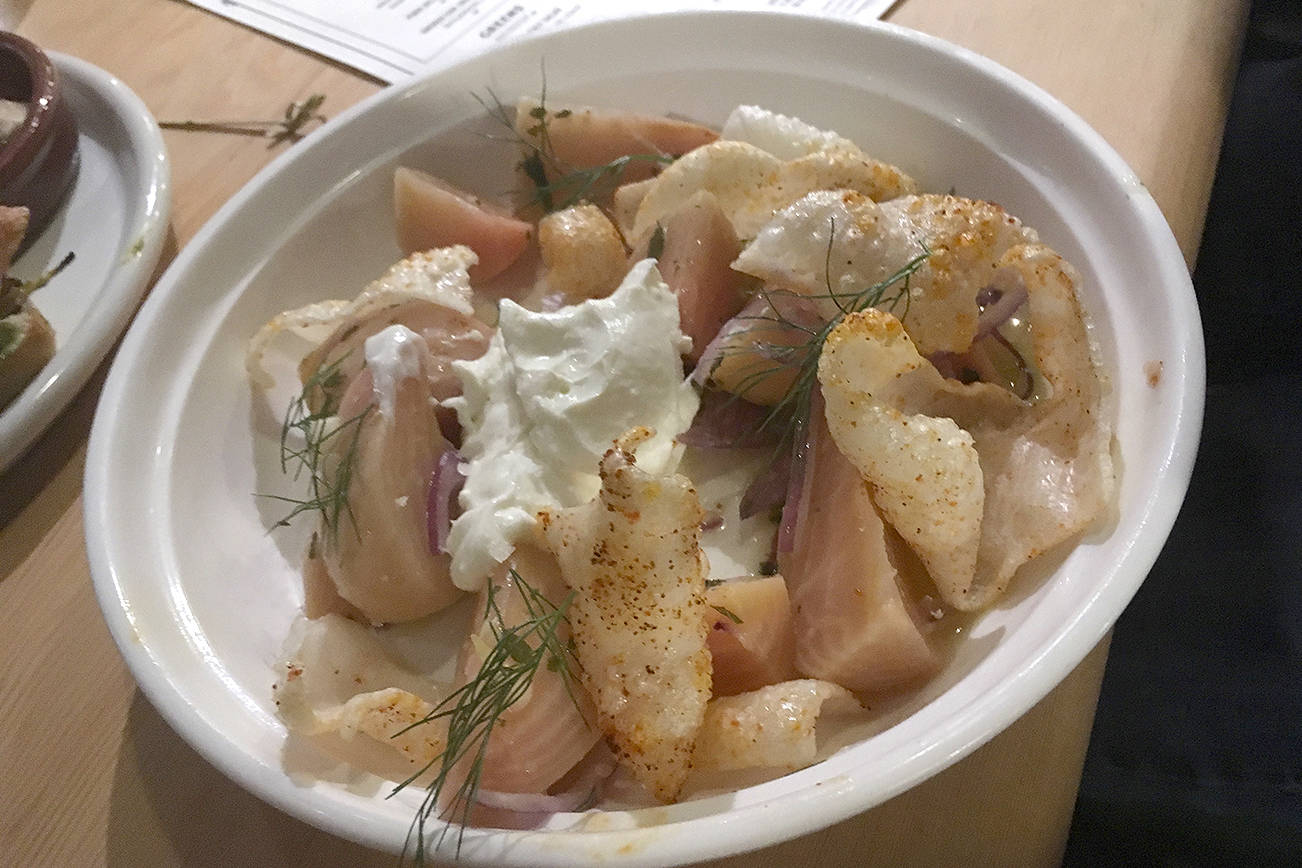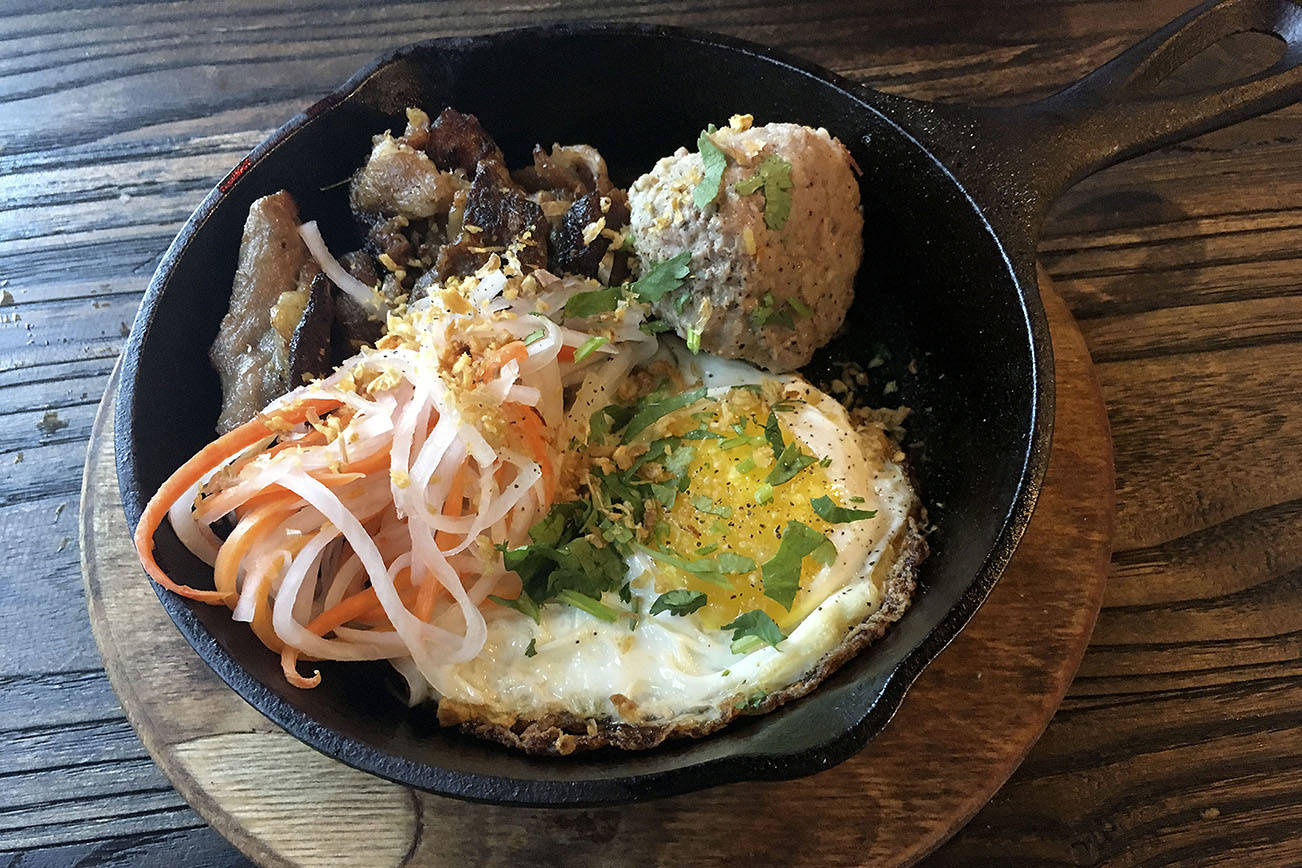Few things put me off—and potentially sour my dining experience—more than these words: “We’ll need your table at [insert time]. Do you think you can finish by then?” That’s how the hostess at Mount Baker’s new French/Japanese Iconiq (1421 31st Ave. S., 568-7715) greeted us on a sunny Friday night when we’d actually made a reservation a week in advance. While an hour and a half was likely to be no problem for us, such a request made the whole experience feel rushed regardless.
When I asked our server to please course out our meal in phases since we’d ordered several entrées, I inquired about the odd introduction. He, considerably politer than the hostess, explained that given the small space, they had to impose time frames in order to be profitable. Fair enough, but that’s likely the case at many spots these days, and I’ve yet had anyone tell me to move on out at a specified time.
Fortunately, after being seated in the bare-bones space, with its bright airiness, beautifully grained wood tables, and handsome chairs, we were promptly brought an amuse-bouche: a shot glass of mint and pea soup with a yuzu sour cream. It’s a classic spring slurp, with the added tart yuzu (an east Asian citrus fruit) as the Japanese twist. While many restaurants of late seem to be incorporating more Japanese influence, Iconiq is really embracing these techniques and flavors, melding them with classic French dishes like crepes, terrines, and sweetbreads. That’s due to the Japanese heritage of chef/owner Toshiyuki Kawai, along with his tutelage at former iconic French-heavy restaurant Book Bindery.
The crepe, one of four starters, is a perfect little pouch for salmon, the whole pretty package resting in an orange beurre blanc that is sweet and just a tad zippy, a couple segments of blood orange, fennel apple, and wasabi cream snuggling up on the side. It’s a delightful dish, though the salmon itself doesn’t project. A few jewels of salmon roe and a stick of fried salmon skin on top bring a requisite brine. Its sweetness went nicely with my dry Muscadet and an herbal ale from Japan (the restaurant doesn’t serve liquor, but does have an extensive menu of wines, sakes, and beer).
Of the three mains we ordered, my favorite was the sweetbread risotto. The sweetbreads themselves are cooked fabulously. The deep crackle of the exterior stands in contrast to the moist innards, reminding me of fried chicken, though made even better with a dousing of lemon soy. The pairing with risotto is smart; I rarely order risotto as a main course because it always seems too one-note for me, but here, brightened with chervil, dill, and parsley, it’s a companionable partner, a sidekick rather than the whole show. Only quibble: Less Parmesan would let the herbs speak more emphatically.
The saikyo yaki kinki is a quiet but memorable dish. The name refers to a sweet miso paste that a lovely piece of Japanese snapper marinates in for two days (which helps cut through the fat) before being served atop black rice (in fact, colored pink by the red miso) and a side of crunchy kelp-fermented vegetables and a yuzu-kosho chimichurri—a Japanese paste made of yuzu, chilis, and salt. It displays the beauty of Japanese technique—the ability to infuse delicate meats like fish and chicken with a deft savory touch. The braised beef cheek, however, was forgettable. It veers on blandness with a mint-and-pea potato purée that’s also lackluster, the entire dish a disappointment at $26. Speaking of prices, they’re steep: Mains range from $24 to $32 (with the exception of a $19 pea-and-morel risotto). Starters range from $11 to $20 (our salmon crepe was $20).
Desserts include three options: a cheese plate, a matcha parfait, and a berry soup. Not a fan of matcha, I opted for the berry soup, which is rescued from the pedestrian by a red wine that commingles with the juice of blackberries, blueberries, strawberries, and pitted cherries—and the fruit itself—all topped with a petite scoop of housemade vanilla ice cream.
Iconiq is a nice addition to a neighborhood that’s lacking in fine-dining options, and the Japanese-accented menu is novel and generally well-executed. But at those prices, and to get folks to come from afar, the restaurant’s staff would do better to usher in its diners like guests rather than numbers.
nsprinkle@seattleweekly.com
